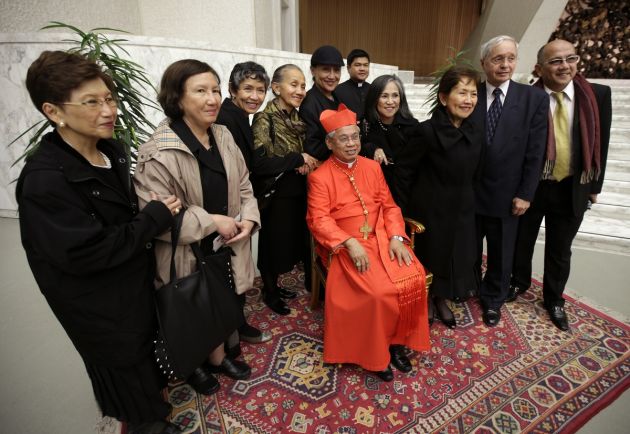Filipino bishops urge government to probe purported IS recruitment

A Filipino Catholic leader is calling on the Philippine government to examine reports that people from Davao City were recruited and are currently receiving training by the jihadist group the Islamic State.
Basilan Bishop Martin Jumoad said if the reports were true, what the new recruits will do once they return to the country was something to worry about.
"There is reason to be worried and the possibility is real," the Philippine Daily Inquirer quoted the bishop as saying.
On Aug. 26, Davao City Mayor Rodrigo Duterte said that several residents from the city in city in the southern Mindanao area were recruited by the group and left the country in July.
The local chief executive did not give details but he said he respected the decision of those who joined the fighting in Iraq and Syria.
His statements reinforced information of former President Fidel Ramos that about 100 Filipinos penetrated Iraq to train with the jihadist group, said the report.
Bishop Jumoad appealed to the government to verify the report and continue to be vigilant about it, reported CBCP News, the official news service of the Catholic Bishops Conference of the Philippines.
The worry is that such actions will be heightened when it is done here in Mindanao. "I hope our Muslim leaders will do something to neutralize this," the CBCP News quoted Jumoad as saying.
But the Bangsamoro Islamic Freedom Movement, an armed Muslim militant organization espousing independence in southern Philippines, denied Duterte's claim, saying there was no active recruitment of fighters for Iraq and Syria, reported the Philippine Daily Inquirer.
Earlier, Cardinal Orlando Quevedo, southern Philippines' first cardinal, has joined the worldwide condemnation of the violence inflicted against Christians in Iraq, reported CBCP News.
"I join the worldwide condemnation of the events in Iraq that has caused the persecution of Christians and minorities there," Quevedo, known for his peace advocacy, was quoted as saying.
"I think I would neglect my duty as a religious leader not to condemn the situation in Iraq as created by this fundamentalist radical group," said the bishop.
He noted that "the time to use religion in the name of religious hegemony is long past the dialogue in the name of peace."
The Islamic State group, also known as ISIS and ISIL has seized control of several areas in Iraq and Syria countries and persecuted Christians and Shia Muslims other minorities residing there.
The widespread persecution included beheading, sexual assaults and torture and the killing of children, with the United Nations warning this week its actions amounted to war crimes.
The group has also driven Christians and other religious groups away from Mosul by threatening to kill them if they continue to stay in the area without converting to Islam.